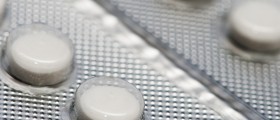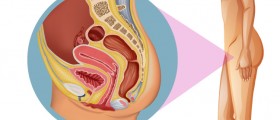
Gynecomastia is the condition in which the breast tissue enlarges in men. This may or may not be accompanied with milk production. One or both breasts can be affected by gynecomastia.
Gynecomastia Overview
Gynecomastia is a common condition and is often temporary. It is frequently caused by hormonal changes that occur during puberty. Gynecomastia can be seen in about 50% of males of pubertal age. Pubertal gynecomastia usually resolves on its own within several months. The condition can be also seen in newborns due to hormonal changes. Elderly men are also often affected by gynecomastia, especially those who are experiencing weight gain.
Breast enlargement in males due to accumulation of fat in the chest is termed as pseudogynecomastia.
Most common cause of gynecomastia is hormonal fluctuations. However, it may result from different medical conditions or use of certain medications. Gynecomastia is most often benign and temporary. It usually resolves without treatment but if breast enlargement is extreme it can be treated with breast reduction surgery.
Sometimes, enlargement of breast tissue in males can indicate serious health condition such as tumor of the testes. Therefore, it is important for men with gynecomastia to undergo physical examination and tests to identify the underlying cause of the condition. A biopsy may be also necessary to rule out cancer as gynecomastia can be sometimes caused by hormone-secreting tumors.Causes of Gynecomastia
Gynecomastia may develop due to variety of reasons. The condition occurs due to changes in the balance of androgen and estrogen. These changes can be due to low levels of androgen, increased production of estrogen or decrease in sensitivity of breast tissue to androgens.
Certain medications can also stimulate breast growth in men as they interfere with natural levels of testosterone and estrogen in the body. Gynecomastia may develop as a side effect of estrogen therapy in men with prostate cancer. Anabolic steroid hormone, anti-androgens or androgen-synthesis inhibitors can also cause gynecomastia.
Gynecomastia can be caused by antibiotics like isoniazid, ketoconazole, metronidazole, and anti-ulcer drugs such as cimetidine. Chemotherapy, diazepam, tricyclic antidepressants and medications for cardiovascular diseases such as captopril and digitixon can too cause breast enlargement in men.
Alcohol and illicit drugs like marijuana, heroin and amphetamines can lead to gynceomastia also. Rarely, gynecomastia may be due to kidney failure, dialysis, genetic defects, tumors or overactive thyroid gland.
Treatment for Gynecomastia
Treatment for gynecomastia is determined by the cause of the condition. If breast enlargement is induced by medications the condition can be resolved by discontinuing the medications.
Gynecomastia accompanied with breast tenderness can be treated with medications such as hormone treatment that blocks the effects of estrogen. Surgery can be used as well.

















Your thoughts on this
Loading...